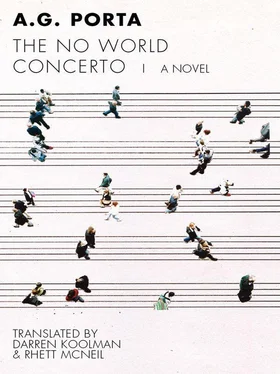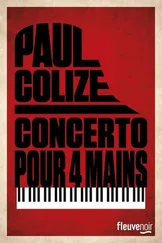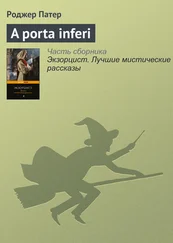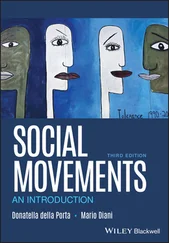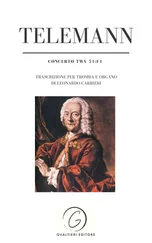It’s an old discussion we revisit on occasion: “let’s imagine twelve-tone music had never been invented,” except now pertaining to literature. The girl’s father dismisses it as a mere catchphrase of hers and her friends, something they repeat insistently, but which has little to do with any real concerns. The girl watches him from the small dining area of the apartment while he dresses at the foot of the bed. Consider, he says, the author who writes about solitude, jealousy, and the passage of time; or the writer who revolutionized twentieth-century literature. No other writers have contributed as much as these, which is why we can’t describe any others with these same epithets. It’s not for our sakes they became great writers, nor for the sake of the market. The girl watches him with great interest as he takes the gun from the holster that’s hanging from the bedpost, clicks off the safety, and returns it to the holster again. They’re important for other reasons than just being great storytellers, he continues. Perhaps neither was the best storyteller there ever was, and perhaps neither had the greatest skill as a writer, or maybe one of them did, but the point is that’s not why we remember them, he says as he takes his jacket from the back of a chair and dons it before the mirror. He looks sideways at his daughter. Let me see if I can explain. The girl takes a seat. Their contribution was not necessarily different in degree, but rather in kind, to what had come before. And so considerable was their contribution, they couldn’t be thought of as mere exponents of some ephemeral movement, members of a literary circle preaching some common aesthetic gospel. What they did went beyond the mere quibbling flimflam of coffeehouse cabals. Their achievement was to look farther than even the political flimflam dividing nations. The girl’s father says all this standing at the door, getting ready to go. That’s why they’re the only two writers with these particular epithets. Then he excuses himself because he’s in a hurry, and the girl’s left alone with her thoughts. To write. Contribute something new. Hypnosis. She walks around the room, looks at herself in the mirror. She doesn’t smoke habitually, but she lights a cigarette and looks out the window at a nondescript landscape. She certainly prefers the view from the hotel in front of the Grand Central Station. She sits in front of the laptop and resolves to write, to conquer the paralysis she believes was visited on her by the hypnotist. She still can’t accept that a mere change of mindset is all she needs to break the spell. She dabbles without success with one of the scenes featuring the old philosophy professor. Perhaps she should write the ending first; she has a good idea how her story’s going to end. Bad idea, she says to herself. Nothing that starts badly can be expected to end well. Perhaps she should change her approach. If she could write with the same daring, the same ingenuity she displayed at the piano. . if her writing was different, in degree and kind, to use her father’s words. . perhaps that’s what’s been missing, she thinks while trying to ignore the persistent ringing of the telephone. Her mother wants to know if she’s alone. She’s always alone. Her father’s still conducting his vigils, although she doesn’t know where they are this time. Her mother wants a meeting with her old teacher. But what’s the point? the girl asks. Her mother says, although unconvincingly, that she wants to come to a financial agreement with him. The girl doesn’t think it will be necessary. The mother then insists, but the girl refuses to comply with her. There’s no point, she says. There is a point, says her mother, and I have to see him. Why do you have to see him? Because he’s murdered his wife, her mother confesses. He gave her a horrible death. How? the girl asks. He tied her to a bed and just left her there to die. The girl gives her mother the address of the hotel where she used to visit him. He checked out of there days ago, says her mother, or rather, was kicked out for starting a fracas with a neighbor. The old teacher’s been keeping a pretty big secret, perhaps it’s more than one, thinks the girl, smirking, on entering the police station with her mother. The whole world has its secrets. Some people may not even be aware of the secrets they harbor. Perhaps we’re aliens without knowing it. But then that wouldn’t be a true secret, she considers, for a secret is something we deliberately conceal from others. One of the police officers shows them photographs of the screenwriter’s wife. There’s a passport photo, but mostly shots of the crime scene. Is it possible her death was part of some game? asks the officer. As far as she knows, the game only ends once the young conductor climbs into her mother’s bed, replies the girl. Her mother slaps her, humiliated. The girl looks back to the police officer. Apparently the game has already ended, she says coldly. Her mother moves away and takes a seat behind them, the shot blurring her in the background to focus on the girl and police officer. Who found her? she asks. Her son, he says. The girl is shaking when she gets back to the apartment. Her father’s still out, and she resolves to write the scene. Hypnosis is no longer a concern. The only thing that has her in a trance is the knowledge that someone so close to her could be capable of something so cruel. The game continues. Indeed, perhaps there are only two people in the world who know this to be true, that the game still lacks an ending. The girl gets down to work, finally exorcised of her obsession with hypnosis, of her self-doubt, or whatever it was that paralyzed her before. As novels with various stories moving in parallel must bring them all to an end, so it is with the game, and very few players seem to realize the difficulty of dealing with so many interrelated stories that diverge from one another and get lost before finally discovering their own endings. She’s now writing a scene she’s been struggling with for some time: the one in which the old professor’s arguing with his wife about the anonymous letter, about his relationship with the female student, with all the mutual threats, and the screaming and shouting. She thinks about the scene, not knowing how to approach it. It’s not the right words she lacks, but a focus for the scene, a resolution, and nothing that comes to mind strikes her as very original. She does have a clear image of the old guy in her mind, though, sitting in front of the bed, drained, as if after a great ordeal, looking at his wife as she slowly regains consciousness. She moves her mouth to say something, but finds her words are muffled by a gag. The discovery brings her to like a splash of cold water, and her eyes become as expressive as they’ve ever been — darting here and there, trying to take in everything around her, to ascertain whether he’s really followed through on his threats, and on discovering he has, as if trying to escape the fleshy tether binding them to the woman’s sockets. He watches her to ensure she’s properly secured. Then, without saying a word, gets up and goes. The girl lights a cigarette and leans out the window to smoke it. She’s not looking at anything, but her mind’s eye is focused on that image of the woman lying dead in the bed, for she’s entranced by the notion that the old guy committed such a despicable crime. He probably justified it by convincing himself she was an alien. How else could he have eased his conscience, been able to live with himself? Then she wonders if, years later, in the City in Outer Space, while seated on a chair in the control room, looking through the windows at the stars, the old professor could deal with the return of those memories; if, between dreams, while stumbling through deserted streets, familiar to him because he sees them daily, because the ravages of war have endowed each with its own unique aspect, he’ll be hoping for something to happen, something he’s been waiting for years to happen, a resolution, something for which the hope becomes an end in itself to make his situation more tolerable, so he can make sense of it. The girl writes: “When the answer cannot be put into words, neither can the question be put into words. The riddle does not exist.” This isn’t the ending, but the end’s right there. It’s always been there. Just a few more lines.
Читать дальше
